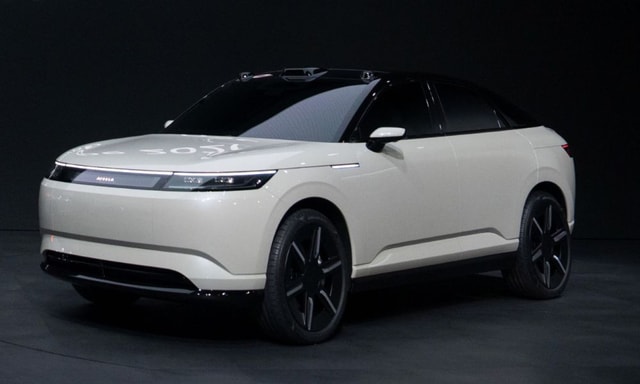Is cash better than car finance?

- Many dealerships offer car financing options
- Paying cash can help the buyer avoid interest costs
- Car loan interest rates have fallen considerably over the last few year
Your automobile is an important part of your daily routine. It offers needed transportation, but it also delivers miles of pleasure and delight on the open road. When it comes time to buy a new automobile, many individuals worry about whether they should pay cash or take out a loan. While financing might make purchasing a vehicle more reasonable, spending cash can get you a better price and eliminate the need for annual payments. When comparing financing to buying a car, numerous factors to consider. It all depends on your financial condition and which option appeals to you the most.

Buying Car Cash Down
Buying a car with your own money has several advantages. Some of these advantages include: -
- A monthly automobile payment will have no impact on your budget or other responsibilities.
- Interest will not be applied because you are not dealing with a loan.
- You don't have to be concerned about loan eligibility.
- You won't fall into debt, and you won't add to what you already have.
- It lowers the chances of splurging on an automobile beyond your price range.
- Since a car loan does not appear on your credit record, it has no bearing on your income to debt ratio or your chance to get other financing, such as a mortgage.
- You won't have to worry about missing payments or failing on the loan if you face financial difficulties later.
Owning a car entirely also allows you to be more financially flexible. Since a borrower will not need a minimum amount of insurance, you can reduce the amount of insurance you carry if necessary, and you can sell the automobile if you need cash quickly.

Financing A Car
You are going to be taking a loan when you finance an automobile. You can borrow a loan from a lender, a finance firm, or a community bank directly, or you can use dealership financing, in which the dealer arranges the loan through the commercial bank with whom the dealer works and has ties.
With car financing, you would have to make a down payment and then back the loan in equal monthly installments over a certain period. Fees for processing the loan may alter, which will be added to the balance, and interest will be factored into the payments. A variety of criteria determines the interest rate on your car loan, and at the top of this is your credit score. Lower rates may be available if your credit score is in the higher range. It may make sense to finance a car when –
- You want to drive a newer vehicle that you won't be able to afford in a reasonable time.
- So, because the interest rate is modest, the additional charges will not significantly impact the ultimate cost of the car.

When it comes to selecting between buying a car with cash or taking out a loan, buying with cash is the superior option for saving money. Taking out a car loan may provide you with immediate access to the vehicle, but you will wind up paying 30% to 40% more than the on-road price, and you will not own the vehicle until the loan is paid off.
Latest News
 Jaiveer Mehra | Jan 7, 2026Tata Harrier, Safari Petrol Launched In India: Prices Start From Rs 12.89 LakhBoth SUVs get the 1.5-litre Hyperion turbo-petrol engine from the Sierra in a higher state of tune.3 mins read
Jaiveer Mehra | Jan 7, 2026Tata Harrier, Safari Petrol Launched In India: Prices Start From Rs 12.89 LakhBoth SUVs get the 1.5-litre Hyperion turbo-petrol engine from the Sierra in a higher state of tune.3 mins read Carandbike Team | Jan 7, 2026Toyota Urban Cruiser EV India Debut On January 19Toyota’s entry EV is the sister model to the Maruti Suzuki e Vitara and shares the same underpinnings and tech.1 min read
Carandbike Team | Jan 7, 2026Toyota Urban Cruiser EV India Debut On January 19Toyota’s entry EV is the sister model to the Maruti Suzuki e Vitara and shares the same underpinnings and tech.1 min read car&bike Team | Jan 7, 2026Tata Punch Facelift Variants, Key Features RevealedThe Punch facelift will be offered in four familiar key trim levels and six variants.1 min read
car&bike Team | Jan 7, 2026Tata Punch Facelift Variants, Key Features RevealedThe Punch facelift will be offered in four familiar key trim levels and six variants.1 min read car&bike Team | Jan 7, 2026Skoda Kylaq Prices Hiked By Up To Rs 19,000Prices for the Kylaq subcompact SUV now start at Rs 7.59 lakh (ex-showroom).1 min read
car&bike Team | Jan 7, 2026Skoda Kylaq Prices Hiked By Up To Rs 19,000Prices for the Kylaq subcompact SUV now start at Rs 7.59 lakh (ex-showroom).1 min read Amaan Ahmed | Jan 7, 2026Ather 450X To Get Cruise Control; All 2025 Examples Will Receive Infinite Cruise Via OTA UpdateMore than 44,000 customers who bought the Ather 450X in 2025 will be eligible for the over-the-air update that will introduce 'Infinite Cruise'.1 min read
Amaan Ahmed | Jan 7, 2026Ather 450X To Get Cruise Control; All 2025 Examples Will Receive Infinite Cruise Via OTA UpdateMore than 44,000 customers who bought the Ather 450X in 2025 will be eligible for the over-the-air update that will introduce 'Infinite Cruise'.1 min read Jaiveer Mehra | Jan 7, 2026Afeela SUV Prototype Is Sony-Honda’s Next EVThe second model under the Sony-Honda joint venture to debut in production guise in 2028.1 min read
Jaiveer Mehra | Jan 7, 2026Afeela SUV Prototype Is Sony-Honda’s Next EVThe second model under the Sony-Honda joint venture to debut in production guise in 2028.1 min read
 Amaan Ahmed | Jan 3, 2026VLF Mobster 135 300 KM Review: Fun But FlawedA 125 cc scooter with Italian design and Chinese genes is a rare combination, and while some may be tempted to dismiss it because of its origins, the VLF Mobster shows 125s can also be exciting – but not without compromises.11 mins read
Amaan Ahmed | Jan 3, 2026VLF Mobster 135 300 KM Review: Fun But FlawedA 125 cc scooter with Italian design and Chinese genes is a rare combination, and while some may be tempted to dismiss it because of its origins, the VLF Mobster shows 125s can also be exciting – but not without compromises.11 mins read Preetam Bora | Dec 30, 2025TVS Orbiter Review: Real-World Performance and Range TestedThe TVS Orbiter is a promising electric scooter promising decent range, practicality and pricing. But is there any reason to avoid it? We spent a few days getting to know it better.9 mins read
Preetam Bora | Dec 30, 2025TVS Orbiter Review: Real-World Performance and Range TestedThe TVS Orbiter is a promising electric scooter promising decent range, practicality and pricing. But is there any reason to avoid it? We spent a few days getting to know it better.9 mins read Jafar Rizvi | Dec 24, 2025MG Windsor EV 38 kWh Long-Term Report: IntroductionThe Windsor EV has joined our garage, and before it settles into daily duty, I took it out to get a sense of what living with an electric car is like.4 mins read
Jafar Rizvi | Dec 24, 2025MG Windsor EV 38 kWh Long-Term Report: IntroductionThe Windsor EV has joined our garage, and before it settles into daily duty, I took it out to get a sense of what living with an electric car is like.4 mins read Seshan Vijayraghvan | Dec 23, 20252026 Kia Seltos Review: Formula Is Spot On, But Is The Timing Right?The 2nd-gen Kia Seltos has arrived, but it has the challenge of facing strong rivals like the Victoris and Sierra. The question is simple - Does it still have what it takes?9 mins read
Seshan Vijayraghvan | Dec 23, 20252026 Kia Seltos Review: Formula Is Spot On, But Is The Timing Right?The 2nd-gen Kia Seltos has arrived, but it has the challenge of facing strong rivals like the Victoris and Sierra. The question is simple - Does it still have what it takes?9 mins read car&bike Team | Dec 26, 2025Tata Punch EV Long-Term Second Report: Highway Performance, Pros & ConsAfter a week of living with the Tata Punch EV Long Range—including a proper Mumbai-Nashik highway test—we've learned what this little electric SUV is really made of.1 min read
car&bike Team | Dec 26, 2025Tata Punch EV Long-Term Second Report: Highway Performance, Pros & ConsAfter a week of living with the Tata Punch EV Long Range—including a proper Mumbai-Nashik highway test—we've learned what this little electric SUV is really made of.1 min read






















































































































